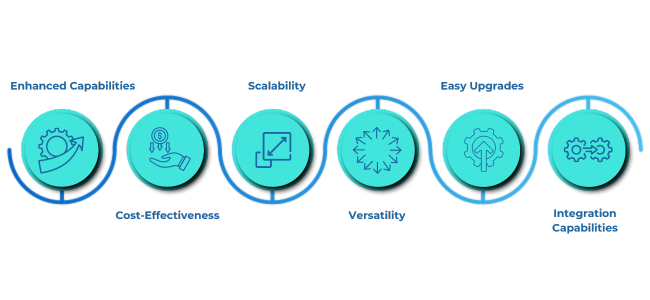The New Era of Machine Vision Using AI
Published May 30, 2024
The field of machine vision is experiencing a transformative shift, driven by advancements in artificial intelligence (AI). As industries strive for higher precision, efficiency, and automation, AI-powered machine vision systems are becoming integral to modern manufacturing and industrial processes. This article explores the revolutionary impact of AI on machine vision, as outlined in the book "The Future of Machine Vision: Enhancing Automation through AI."
The Foundation of Machine Vision
Machine vision is a technology that employs cameras, sensors, and algorithms to automate inspection, process control, and robotic guidance. It has been a cornerstone in industries such as automotive, pharmaceuticals, and electronics, ensuring products meet stringent quality standards. Traditional machine vision systems rely heavily on predefined programming and hardware setups, which, while effective, come with limitations.
Challenges of Traditional Machine Vision
Traditional machine vision systems are often expensive, complex, and bulky, making them difficult to scale and adapt. These systems require significant investment in specialized cameras, lighting, and processing units. Maintenance and upgrades are costly and time-consuming, leading to operational inefficiencies. Moreover, their lack of flexibility and adaptability poses challenges in dynamic manufacturing environments where product designs and components frequently change.
AI: A Game Changer for Machine Vision
AI, particularly through deep learning, is addressing these challenges by providing machine vision systems with enhanced capabilities. AI-powered machine vision systems can learn from data, adapt to new environments, and improve over time without human intervention. This adaptability is crucial for modern manufacturing lines that need to switch production models or update product designs frequently.

1. Enhanced Capabilities: AI enables machine vision systems to develop complex recognition patterns, reducing false positives and detecting unforeseen defects. These systems can adapt to new or changing environments rapidly, ensuring consistent quality control.
2. Cost-Effectiveness:> AI-driven solutions, such as Intelgic’s Vision AI system, eliminate the need for bulky, expensive machinery. A simple camera setup paired with advanced AI software can perform complex vision tasks, significantly reducing initial and ongoing costs
3. Scalability: AI-based systems are built on flexible platforms that can easily scale. Expanding the system is as simple as adding more cameras and enhancing server capacity, allowing businesses to grow without substantial additional costs.
4. Versatility: AI-powered vision systems can detect multiple types of products and defects with a single setup, making them versatile across different product lines and manufacturing stages.
5. Easy Upgrades: Software-based AI systems can be updated swiftly without the downtime associated with hardware modifications, ensuring that machine vision capabilities remain cutting-edge.
6. Integration Capabilities: Multiple cameras can be connected to a single server, consolidating monitoring and analysis across various production stages, simplifying management, and enhancing oversight.
Real-World Applications
The integration of AI in machine vision is revolutionizing various industries:

Electronics: AI-powered vision systems detect microscopic defects in electronic boards, improving quality control and reducing rejection rates.
Automotive: Machine vision ensures correct assembly and detects component defects, enhancing production efficiency.
Pharmaceuticals: AI-driven vision systems inspect pill integrity and proper labeling, ensuring compliance with health standards.
Food and Beverage: Vision systems sort products based on size, color, and ripeness, optimizing production processes.
AI is ushering in a new era of machine vision, transforming traditional systems into flexible, scalable, and cost-effective solutions. As outlined in "The Future of Machine Vision: Enhancing Automation through AI," these advancements are paving the way for smarter, more efficient, and more automated industrial operations. The future of machine vision lies in the seamless integration of AI, which promises to revolutionize quality control, defect detection, and overall manufacturing processes, setting the stage for a new era of industrial automation.

